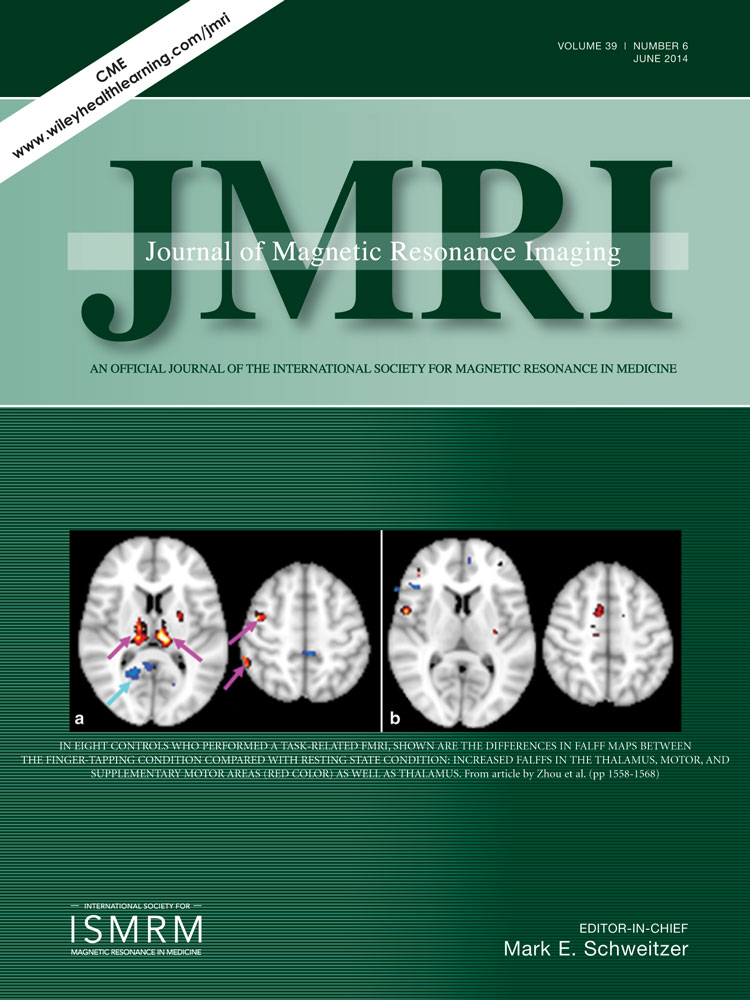Potential prognostic implications of whole-body bone marrow MRI in diffuse large B-cell lymphoma patients with a negative blind bone marrow biopsy
Abstract
Purpose
To assess the prognostic implications of whole-body bone marrow MRI findings in diffuse large B-cell lymphoma (DLBCL) patients with a negative blind bone marrow biopsy (BMB).
Materials and Methods
Thirty-eight patients with newly diagnosed DLBCL and negative blind BMB prospectively underwent whole-body MRI (T1-weighted, T2-weighted short inversion time inversion recovery, and diffusion-weighted sequences), which were scored as positive or negative for lymphomatous bone marrow involvement. Proportions of patients who experienced disease relapse/progression or died during follow-up were calculated and compared between whole-body MRI-positive and whole-body MRI-negative patients.
Results
The median follow-up time of surviving patients was 973 days (range, 391–1655 days). Disease relapse/progression occurred in 33% (5/15) of patients with a positive whole-body MRI and in 13% (3/23) of patients with a negative whole-body MRI. In addition, 20% (3/15) of patients with a positive whole-body MRI died during follow-up, compared with 9% (2/23) of patients with a negative whole-body MRI.
Conclusion
The results of this study show that disease relapse or progression and death may occur more frequently in whole-body MRI-positive patients than in whole-body MRI-negative patients, which suggests that whole-body bone marrow MRI findings in DLBCL patients with a negative BMB may have prognostic implications. J. Magn. Reson. Imaging 2014;39:1394–1400. © 2013 Wiley Periodicals, Inc.




